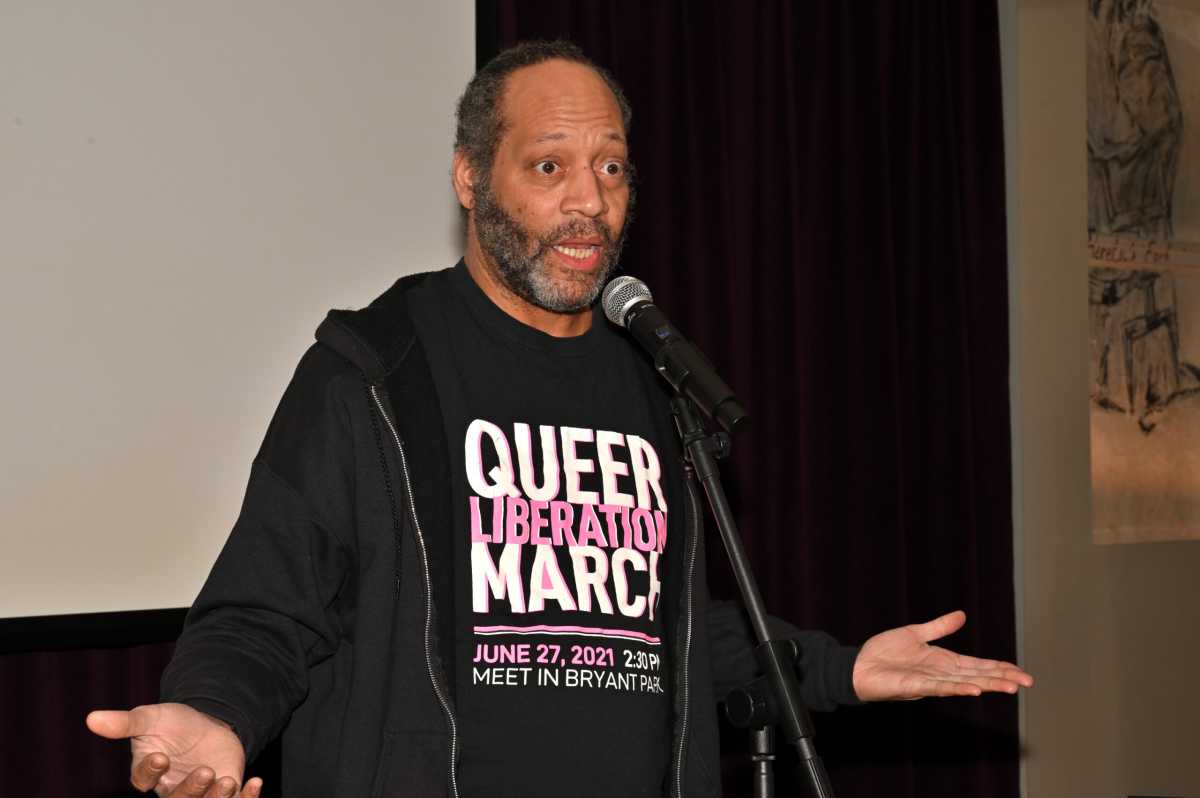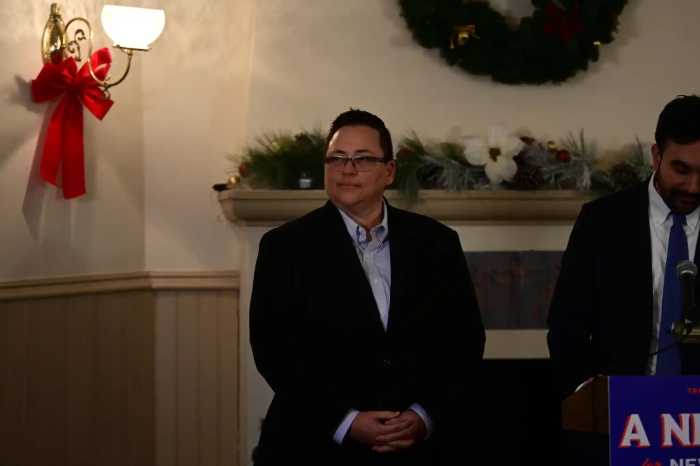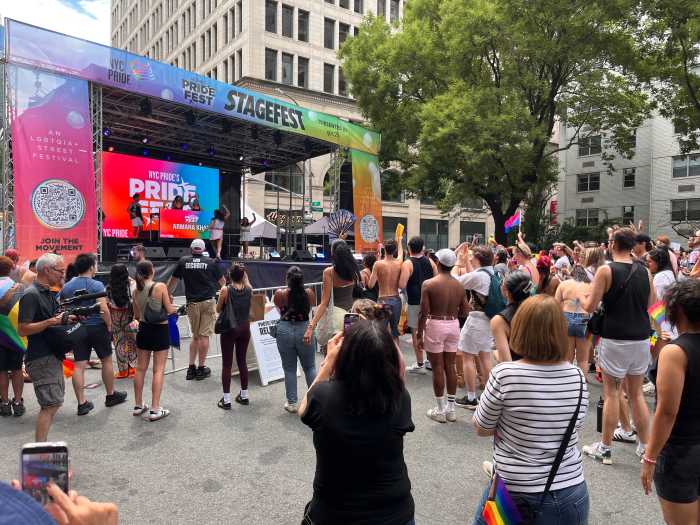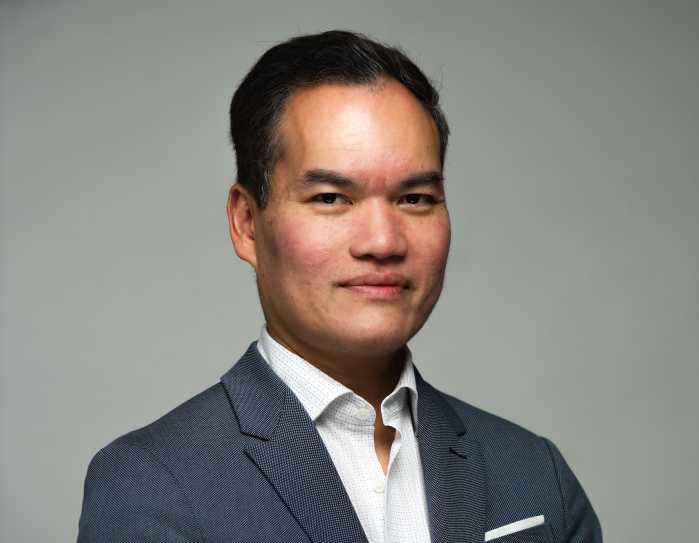With five months to go until Pride Sunday in New York City, members of the Reclaim Pride Coalition hosted an engaging town hall meeting at the LGBT Community Center on Jan. 26 to begin the process of plotting out the 2024 Queer Liberation March.
Throughout the meeting, individuals floated ideas pertaining to the theme and route for what will be the sixth annual edition of the Queer Liberation March, which has drawn tens of thousands of marchers annually since launching in 2019 as a grassroots alternative to the Heritage of Pride-led main march. The Queer Liberation March bars corporate sponsors and police involvement and takes place on the same final Sunday in June as the main parade. Pride Sunday falls on June 30 this year.
One of the looming decisions for this year’s Queer Liberation March involves the beginning and ending locations. The route has shifted around over the years, and while the Queer Liberation March has concluded at Washington Square Park on multiple occasions in the past, those marches have been marred by instances of police aggression at the park — and it tends to be far too crowded.
One idea that resonated during the meeting was to start the march at Washington Square Park and end it at Battery Park, which is not as close to residential neighborhoods as Washington Square and would allow marchers to spread out more — especially if the march concludes with a rally, much like it did in the first Queer Liberation March in 2019 when folks rallied at Central Park. (Last year’s march started with a rally at Foley Square.)
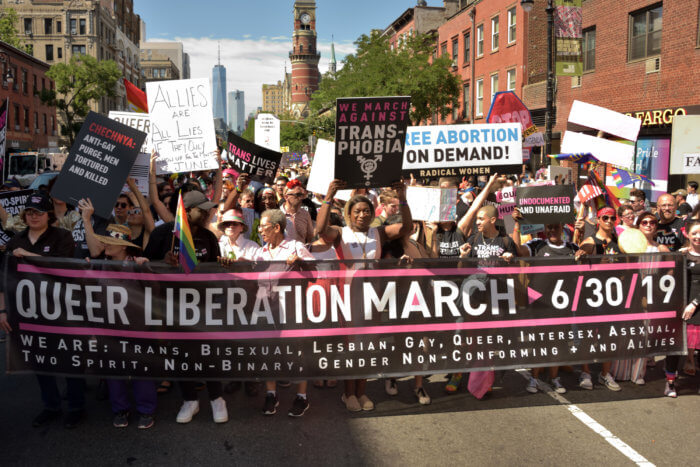
Jay W. Walker, a co-founder of the Reclaim Pride Coalition and the host of the town hall, said starting at Washington Square would be a “cool idea,” and he said starting it in the afternoon — by around 1 p.m. or 2 p.m. — could allow people to come in from surrounding areas like Long Island, Pennsylvania, and New Jersey. If the march does indeed step off at Washington Square Park, Walker said he would prefer to see it begin under the arch.
Ann Northrop, a longtime journalist and activist who also serves as a key leader of the Reclaim Pride Coalition, agreed that starting the march at Washington Square Park could work as long as it does not cross Heritage of Pride’s parade route.
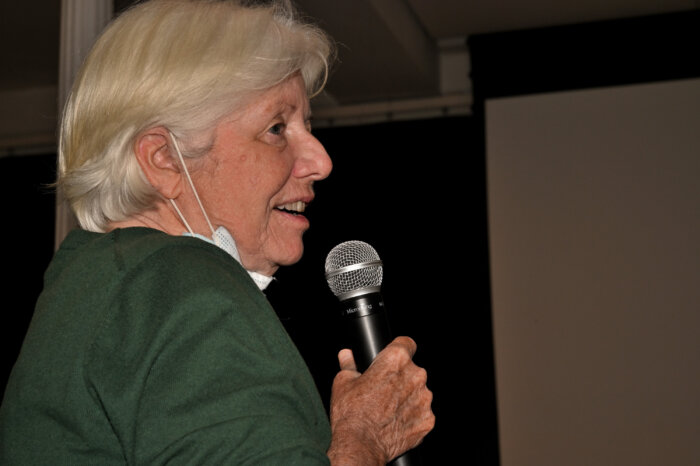
Among other topics, the meeting also touched on LGBTQ economic empowerment and featured a discussion about youth that ultimately segued into a broader discussion about how young people could fit prominently into the broader theme of the 2024 march. Multiple public school employees spoke up during the meeting about the challenges they face at work — including how difficult it can be for educators to incorporate LGBTQ-related books in the classroom without triggering bigoted parents who do not want their children to be exposed to such diversity. One teacher with more than a decade of experience in New York City schools said parents “come with fear that you’re indoctrinating kids, that you’re talking about all kinds of inappropriate things with them.”
Another public school employee who decried the conditions they’ve seen in schools wondered aloud whether there are even inclusive bathroom policies in place in New York City schools (there are).
Mariama Morray, a nursing student, also made the case that LGBTQ inclusion must improve in educational settings — particularly in healthcare.
“Just speaking from my experience as a nursing student, there is so little information that people are willingly putting into the curriculum, especially about queer and trans people,” Morray said. “I have to specifically ask over and over again about how this applies to intersex people, to people on hormone replacement therapy…”
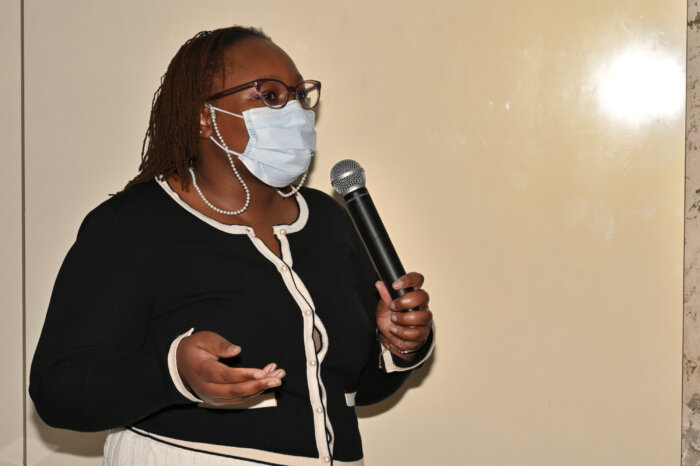
The discussion about education and youth prompted Northrop, who recalled working as an HIV/AIDS educator 35 years ago, to encourage members to incorporate those issues into this year’s march. In 2022, the theme was “Trans and BIPOC Freedom, Reproductive Justice, and Bodily Autonomy,” while last year’s theme was “Trans & Queer; Forever Here!”
“Let me make a presumptuous and radical suggestion … that this march be youth-oriented as a whole and the theme be something about ‘the future is now,’” Northrop said. “I think that fits in with the presidential campaign, which we can’t ignore; all the state-by-state, city-by-city horrors of proposed legislation, which are mostly youth-targeted; and you can fit economic empowerment into it too, and almost anything you want, but really make it a youth-run, youth-focused event this year.”
“That is a great idea,” Walker responded.
Northrop further suggested that the Reclaim Pride Coalition could explore some concrete ways of helping youth. One idea she floated was to help promote organizing among students and help them formulate the demands they have for change.
Several others echoed Northrop’s suggestion to focus on youth, though there were also comments urging the Reclaim Pride Coalition to make sure the march is intergenerational.
The proposals were well-received among members in attendance, and Walker acknowledged the strong appetite for a youth-driven theme. Still, he said, nothing was finalized and plans are subject to change.
“Those are really great starting places,” Walker said. “We don’t know what’s going to happen between now and June, right? … This has been a great way to start the process.”
The Reclaim Pride Coalition meets on Wednesdays at 7 p.m. Watch the livestream of the town hall on the Reclaim Pride Coalition’s Facebook page.

